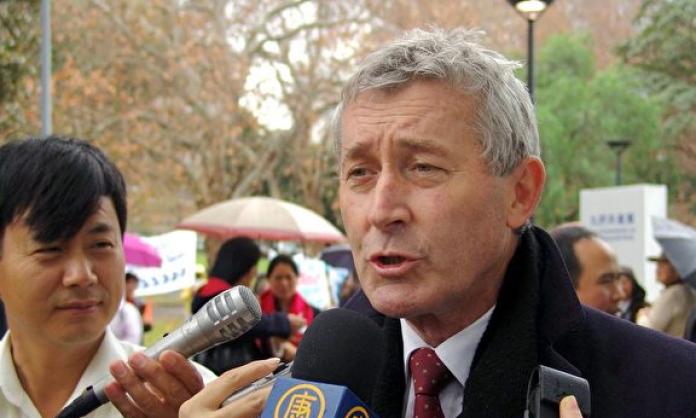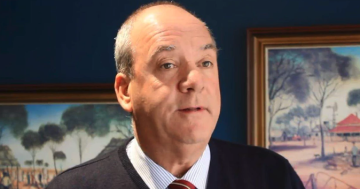
Former ACT Attorney general Bernard Cllaery will be charged with conspiracy over his involvement with the Witness K case. File photo.
Former ACT Attorney-General, deputy chief minister and barrister Bernard Collaery will face the ACT courts this week, where he will be charged with conspiracy for his role in advising an Australian secret agent and for speaking to the media about the matter.
“Essentially, I will be in my own dock,” he told Region Media.
Mr Collaery is the lawyer for Witness K, who blew the whistle in 2012 over Australian intelligence services bugging the Timor-Leste cabinet room during 2004 discussions over the Timor gas treaty. He is believed to have been part of a team of ASIS operatives who carried out the operation. In 2013, ASIO raided Witness K and Mr Collaery’s chambers, seizing the client brief.
Although nobody has seen Witness K’s statement, it’s believed to relate to the agent’s concerns that Australia acted unethically during good faith negotiations with East Timor, and his concerns over the subsequent appointment of former foreign minister Alexander Downer and former Secretary of the Department of Foreign Affairs and Trade, Dr Ashton Calvert, to roles with Woodside Petroleum, a joint venture partner in the Sunrise natural gas field development.
“I am to be charged with conspiracy and, after the raid on my chambers and the seizure of my papers, with speaking to the media without approval, conveying information in breach of the Intelligence Services Act when I complained about what I regard as an unlawful search of my chambers and the seizure of my brief,” Mr Collaery said.
He was speaking after a panel on truth telling in Australia, held at the 2019 Stronger than Fiction documentary film festival.
Mr Collaery is currently the subject of a National Security Order which has also prevented him from instructing his own legal representation, a situation he described as “extraordinary” and “Kafkaesque”.
During the panel discussion, Mr Collaery said he was concerned that successive Australian governments had become obsessed with terrorism and their attempts to control it, although Australia has been subject to few attacks.
“9/11 pushed us away from our democratic foundations. We are moving into areas unknown even in wartime restrictions regarding control of our population. This is new and repressive territory,” he said.
Mr Collaery said that Agent K had written approval to seek advice from a lawyer over his concerns, and that his own advice had been provided in good faith as an approved practitioner. Subsequent to the revelations about Australian espionage, Timor L’Este took the Australian government to the International Court of Justice in The Hague, where Australia was ordered to stop spying on its neighbour.
Subsequently, the two countries agreed to re-negotiate the gas treaty on terms significantly more favourable to the Timorese.
Professor Clinton Fernandes from UNSW Canberra, ADFA, was also at the panel discussion. “Both governments would like to put the past behind them and move forward,” he said. “But at the civil society level in Timor there is a lot of support for Bernard Collaery and Witness K because there would not be a new Timor gas treaty without them.
“The treaty has only been re-negotiated because Collaery and K revealed the spying operation.”
Mr Collaery, who faces an uncertain future as the case proceeds, said that while he was deeply concerned by the direction in which successive governments had headed, he retained his faith in due process in the Australian courts.
“We will eventually need the High Court to decide whether we have just an implied freedom of speech or whether there is a more substantive right where there is executive misconduct to make public comment about it, and whether there are any laws such as the particular law in the intelligence services act are beyond power – that is, those laws to the extent to which they would prevent me speaking, are unconstitutional.”
He hopes that at best, the case will expose the misuse of legislation given in the fight against terrorism, that it may embed better implied rights of freedom of expression in constitutional terms and it might have a salutary effect not on whistleblowers but on politicians “who want to misuse laws to hide their political dirty linen”.
The case is listed at the ACT Magistrate’s Court on Tuesday and may later be committed to the ACT Supreme Court. The charges carry a two-year maximum jail term for conspiracy to provide information about the Australian Secret Intelligence Service.
Original Article published by Genevieve Jacobs on The RiotACT.








